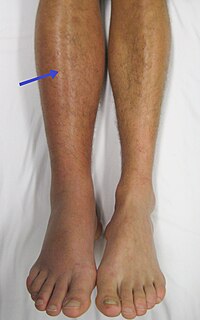
Hyperprolactinemia in psychotic patients treated in monotherapy with long-acting injectable antipsychotics
Sign Up to like & getrecommendations! Published in 2019 at "International Journal of Psychiatry in Clinical Practice"
DOI: 10.1080/13651501.2019.1576905
Abstract: Abstract Objectives: Hyperprolactinemia (HPRL), defined as plasma prolactin (PRL) >25 ng/ml, is a frequent adverse effect of the treatment with some antipsychotics. The objectives of this study were to determine the prevalence of HPRL among schizophrenic… read more here.
Keywords: long acting; patients treated; psychotic patients; prl levels ... See more keywords

Total Barley Maiya Alkaloids Prevent Increased Prolactin Levels Caused by Antipsychotic Drugs and Reduce Dopamine Receptor D2 via Epigenetic Mechanisms
Sign Up to like & getrecommendations! Published in 2022 at "Frontiers in Pharmacology"
DOI: 10.3389/fphar.2022.888522
Abstract: Background: The dopamine D2 receptor (DRD2) plays an important role in the increased prolactin (PRL) levels associated with the pathogenesis of antipsychotic drugs (ADs). Elevated prolactin levels can affect people’s quality of life. Maiya alkaloids… read more here.
Keywords: drd2; maiya alkaloids; prl; expression ... See more keywords

Factors influencing prolactin levels in chronic long-term hospitalized schizophrenic patients with co-morbid type 2 diabetes mellitus
Sign Up to like & getrecommendations! Published in 2022 at "Frontiers in Psychiatry"
DOI: 10.3389/fpsyt.2022.1034004
Abstract: Background For long-term hospitalized patients suffering from schizophrenia, metabolic disease and hyperprolactinemia (HPRL) are common comorbidities. This article is aimed at analyzing the factors influencing comorbid type 2 diabetes mellitus (T2DM) on prolactin (PRL) levels… read more here.
Keywords: long term; hospitalized patients; factors influencing; term hospitalized ... See more keywords

A Meta-Analysis of Observational Studies on Prolactin Levels in Women with Polycystic Ovary Syndrome
Sign Up to like & getrecommendations! Published in 2022 at "Diagnostics"
DOI: 10.3390/diagnostics12122924
Abstract: Women with polycystic ovary syndrome (PCOS) are reported to have different levels of prolactin (PRL) compared to women without PCOS. This study aimed to evaluate the PRL levels in women with PCOS, compared to the… read more here.
Keywords: prl; polycystic ovary; women polycystic; prl levels ... See more keywords